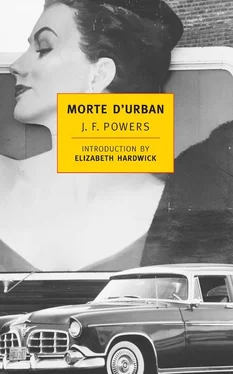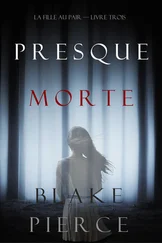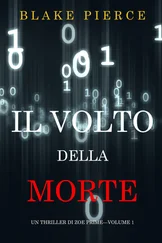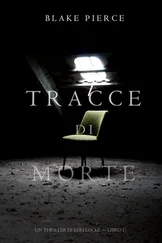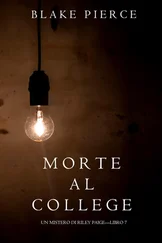“Not exactly. I want to know where I am before I see him.”
“Good idea, Phil.”
“Maybe take the census first.”
“ Very good idea, Phil. How would it be if we did that while you’re gone? Save time.”
“I wouldn’t wish that on you, Father. It can wait.”
“If you want my advice, Phil, don’t rush into this thing,” said Monsignor Renton, coming away from the window.
For the next few minutes, he did everything he could to disrupt the conversation and to draw attention to himself. He brought up entirely unrelated matters. He predicted strikes and shortages. He stood between them so they couldn’t see each other. He ran around in circles looking for his collar (when a car horn tooted below). He followed too closely on the stairs. He fell down on the sidewalk.
And through it all, Father Urban persevered, making the most of his last minutes with Phil. Jogging alongside the moving car, he yelled, “At least we can start on the census!” and peered inside to catch Phil’s reaction to this, but could not, for Monsignor Renton scooted forward on the back seat and called on the driver for more speed. Father Urban had to let go of the door handle then.
He saw Phil’s hand flutter up in the rear window of the big black car, and fall, and though he knew he would not be seen or heard by Phil, he waved and yelled, “’Bye!” Phil must have heard him, though, for the hand fluttered up again. Father Urban’s last impression was of a man being taken for a ride. To Father Urban, Phil’s hand had cried, “ Help! ”
8. SECOND ONLY TO STANDARD OIL
FATHER URBAN HAD given Mrs Burns a cookbook for Christmas inscribed, “To the last one in the world who needs it, Mrs Burns, from one who knows, yours in Christ, Father Urban.” Since then relations between them had become ecstatic on Mrs Burns’s side. Relations had been splendid before, though, for Father Urban had a way with housekeepers, and Mrs Burns obviously liked the idea of having a priest around the rectory. “Thank God!” she’d cry when Father Urban arrived for the weekend. “Another mouth to feed, Mrs Burns.” “Father, I don’t mind that .” What Mrs Burns, a white-haired, well-made widow, did mind was the telephone.
With Phil out of the picture, Father Urban was able to act. “How about it, Father?” he said to Father Chumley. One man would take all A.M. calls, the other man all P.M. calls, and thus life would be made easier for Mrs Burns, said Father Urban. What he did not say was that Father Chumley, if the plan were adopted, would have to cut down on his time in church and give the diocese more of a return on its investment. “O.K.,” said Father Chumley, accepting the new plan, and gracefully at that. Perhaps the curate didn’t need a fire-eating pastor to shove him around. Perhaps he only needed a push, a gentle push, from the right sort of older man.
However, on the first night the new plan was in effect, Father Urban, who had the P.M. hours, took a call at three in the morning. Making no attempt to rouse the curate, he went out and anointed a parishioner. He would’ve said nothing about it. Mrs Burns heard him go out, though, and spoke to Father Chumley in the morning.
“I guess I forgot to turn on my phone,” the curate confessed at breakfast.
Father Urban, who had moved into Phil’s quarters to be near a phone, said, “I guess I forgot to turn mine off.”
Father Chumley looked sad.
“Forget it,” said Father Urban. He hadn’t intended to suggest that this, perhaps, was the difference between them. “I was happy to go out. I really was. It made me feel like a priest — for a change.”
“Why, Father!” cried Mrs Burns. “What a thing to say!”
Father Chumley had smiled, though, at Father Urban’s little tribute to the infantry.
“It’s the truth, Mrs Burns.” Father Urban told them about the old Clementine priest, too long a seminary professor, who had witnessed a street accident and cried out, “For God’s sake — call a priest!”
Father Chumley smiled again, and Mrs Burns laughed.
“Anyway, I’m glad to be here — on the firing line.”
“And we’re glad you’re here,” said Father Chumley.
“Indeed we are,” cried Mrs Burns.
Overnight, it seemed, and without seeking it, Father Urban had gained the ascendancy in the house. There was a better feeling between the priests, although Father Urban felt that he was still regarded as something of a showboat by the curate. Mrs Burns, however, had no reservations about Father Urban. If he in any way fell short of the ideal (and of course he did), Mrs Burns didn’t know it. His word was law, but she still ran for the telephone.
“No! No! Mustn’t touch!”
Or Johnny, as Father Urban now called the curate, would be the one to head her off.
And then they’d all have a good laugh.
Suddenly St Monica’s was a busy, happy rectory.
Father Urban had been in and out of a thousand rectories, always taking an oar when necessary, always glad to help out (up to a point), but at St Monica’s it was different. His hand was on the tiller there. He located a map of the parish. He brought it up to date by incorporating Orchard Park. He began the census. The shaded area on the map, the area covered by him in the morning and Johnny in the afternoon, grew, and at night they got together in the upper room to talk over the day’s findings.
They were asking the usual questions. Number of children in the family, whether baptized, attending what school, religion of both father and mother, whether all of age had made their Easter duty, whether all regularly employed had received each his own box of Sunday envelopes, and so on. Phil, it soon appeared, had really fallen down on the job of distributing Sunday envelopes, and so the census-takers carried a supply along with them, one man using his attaché case for this purpose, and the other his Northwest Airlines bag.
They were also trying to find out how people felt about a new church at St Monica’s. This, too, was Father Urban’s idea. Since Phil had said that his decision to build needn’t be kept a secret, Father Urban didn’t see why the people of the parish shouldn’t be let in on it, but he presented it only as a possibility, for he wanted to learn their true feelings. So that the response could be easily tabulated, people were given a choice of four answers: Strongly Favor, Favor, Don’t Favor, and No Opinion. The first thing the survey revealed was that too many people would vote No Opinion if left entirely to themselves, and so Johnny was urged to strive for greater accuracy, a closer fit. Father Urban pointed out that several No Opinions encountered by him hadn’t understood the purpose of the survey. It had to be made crystal clear to some people that their response if favorable, or even strongly favorable, was in no sense a commitment to contribute. Not a-tall. Once this was made crystal clear, Don’t Favors sometimes became Favors or even Strongly Favors. This was Father Urban’s experience anyway.
The early returns showed the Strongly Favors and Favors well in the lead. As for die-hard Don’t Favors, they were generally elderly people who attended the uncrowded early Mass on Sunday and said things like, “Wouldn’t a new church cost too much?” and “I just like the old one.” Fortunately, there weren’t too many of this sort.
Father Urban wanted Phil to put out of mind all thoughts — thoughts he’d expressed on the night he left — of bringing in a professional fund-raising outfit. The professional bleeders, able as they were, saw life everywhere in terms of Chicago and Boston, and if Phil hired one, his parishioners would soon be getting cute little notes asking how much they’d donated to the horses in the past year. They wouldn’t even understand the question. If Phil conducted his own drive, he could tailor his approach to local conditions, and there would be less wear and tear on the parishioners. He’d save a lot, too. It would be harder on Phil, yes, but it could be the making of him as a pastor. It was Father Urban’s hope that the survey would help Phil to do the right thing when the time came, and to this end, the early results were encouraging.
Читать дальше
